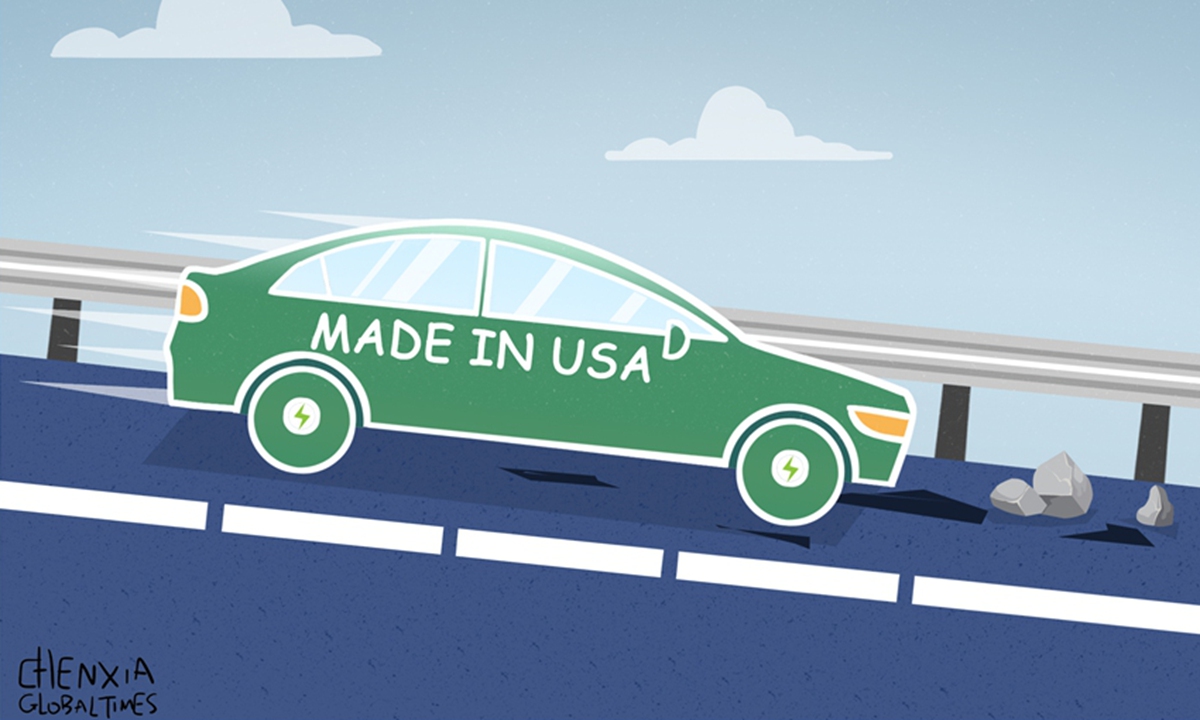commercial cast iron griddle exporter

Illustration: Chen Xia/Global Times
As the US further tightens the requirements for obtaining tax credits for buying electric vehicles (EVs) in 2024,commercial cast iron griddle exporter the policy aimed at protecting the US auto industry is creating a new dilemma for local carmakers: If they have to increase their costs significantly so buyers can qualify for the tax credit, then how can their competitiveness be guaranteed?The US Treasury said that many electric vehicles (EVs) lost eligibility for tax credits of up to $7,500 after new battery sourcing rules took effect at the beginning of 2024, Reuters reported on Monday.
The number of EV models qualifying for the tax credits fell from 43 to 19 as a result.
According to the guidelines issued last month by the Treasury, beginning in 2024, an eligible clean vehicle may not contain any battery components that were manufactured or assembled by a Foreign Entity Of Concern (FEOC). The FEOC designation applies to entities from China, Russia, North Korea and Iran.
Media reports noted that the new requirements are aimed at weaning the US EV supply chain away from China, given Chinese companies' dominant position in the global battery supply chain. But the approach of manipulating and boosting its own EV industry through protectionism and subsidies will only harm the long-term competitiveness of the US auto industry.
At a time when competition in the global EV market is intensifying, the Biden administration's generous but strict tax credit policy for eligible EVs is actually a sign of the deindustrialization trend in the US and a harbinger of US automakers heading into the sunset.
This is also why it is so desperately adopting protectionism and subsidies to keep EV manufacturing localized. But the US has already given its steel industry subsidies and offered other preferential policies, which have still failed to save it from waning.
Vehicle production has been a pillar of the US manufacturing sector, and American automakers still have some edges in this field around the world, especially in smart cars. It is justified for the US to be so aggressive in protecting its auto industry, which matters to many aspects of its economy, like employment.
But as carmakers in other countries play catch-up, American automakers are busy working on how to adjust supply chains to get tax credits for their vehicles, not improve their cost-efficiency or competitiveness in the global markets. It's easy to see that by forcing automakers to piece together less-efficient supply chains, the US tax credit policy has become a drag on the development of the industry.
While the Treasury said that "automakers are adjusting their supply chains to ensure buyers continue to be eligible for the new clean vehicle credit," according to Reuters, China's dominance in the global battery supply chain makes it hard for US carmakers to completely exclude Chinese companies, which means that meeting the tax credit requirements is bound to raise production costs sharply. This has become a crucial factor automakers must consider now, before it's too late.
First, it is hard to anticipate how long the tax credit policy will be in effect, which requires companies to pay a high cost while leaving a huge subsidy burden on the US government. But the impact is certain. In the short run, protectionism can help Washington safeguard its domestic market and maintain stability in employment, but in the long run, the approach can undermine its industrial competitiveness. Once the advantages of subsidies change or even disappear, its auto industry will take a heavy hit.
Second, EV sales are on the rise in the US, but demand has not increased as significantly as investment would indicate.
For instance, a coalition of more than 3,000 auto dealers in the US sent an open letter to US President Joe Biden, calling on him to "tap the brakes" on his administration's aggressive EV push, Fox reported in November 2023. The letter noted that there are many issues facing the EV industry such as a lack of charging infrastructure and energy grid instability. Apparently, subsidies alone can't really promote the development of the EV industry in the US.
Fundamentally speaking, US protectionism reflects fierce competition among the major industrial powers in the era of globalization. Chinese EV makers are developing fast in the global markets, making breakthroughs in many countries and regions. Europe is also making a big push for EV manufacturing. It is clear that there will be growing competition in the field.
Washington's current industrial subsidy policy, including decoupling from China and curbing Chinese manufacturing, won't be enough to stop the sun setting on the American auto industry.
本文地址:http://411.fzgmy.com/html/34e799631.html
版权声明
本文仅代表作者观点,不代表本站立场。
本文系作者授权发表,未经许可,不得转载。